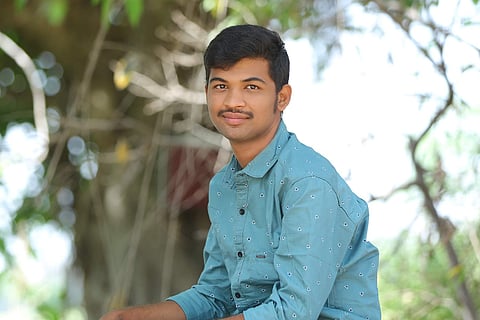

High and low, above and beyond, and everywhere else in between — Ramesh Karthik Nayak has left no stone unturned in searching for 'creative literature' based on his tribe, the Lambadas — the folklore and traditional stories that reflect the very soul and spirit of this Banjara (nomadic) tribe that is spread across the two Telugu-speaking states. But as the evocative lines by writer Toni Morrison go, "If there's a book that you want to read, but it hasn't been written yet, then you must write it.” Adhering to the adage, the 23-year-old penned the book Baldair Bandi (Bullock Cart, 2018) in Telugu, which is just what the doctor ordered to help the world see the tribe beyond their mirror-work attire. This year, the youngster and Anvikshiki Publishers joined hands for his second book, Dhaavlo (Song of Lament), a short story collection that speaks more deeply about these dwellers. "People are looking at my community through the lens of reservation alone, but my hardworking community used to sell salt in the times of the Nizams. The world was our house and we used to float through it like air. My ancestors have even helped the likes of Maharana Pratap Singh by carrying weapons for his army, away from the watchful eyes of the British. This needs to be public knowledge," says Ramesh.
Talking about the exquisite mirror work that the Lambada tribe is known for, the first-year Master's student of Literature says that the square mirrors represent the house, the circular ones denote roti and the rectangular ones represent the area one occupies after death. Also, did you know that Lambada women are trained to cry and this is a very important consideration for nuptials. Eight such stories are contained within the 170-pager Dhaavlo. "The title of the book itself is named after the tradition of rudali where women sing eulogies after their community sees a death," explains the student of Osmania University. Ramesh has seen most of these stories unfold as an observant child when he was all by his lonesome and they have been a part of his repertoire ever since. He went on to fictionalise some of the stories to bring out the plight of the community. "The Criminal Tribes Act passed by the British was the undoing of our tribe. Since we have been wandering traders, we were considered to be informants and backward in our ways and that’s how our woes began," says the writer whose father is a farmer and mother is a vegetable seller.
Up next, after joining hands with Prof Surya Dhananjay who is the Head of the Telugu Department at Osmania University, and one of the first women hailing from the adivasi community to hold this position, Ramesh will be releasing his next book, Kesula. This book, expected to be out next month, is a compilation of stories by authors from the Lambada community. There is also Chakmak, the Jakranpally Thanda-born writer's first English poetry book. "I was always under the impression that Telugu language books might not find an audience. But intellectuals from the community, including entrepreneur and writer Aparna Thota, author Chaitanya Pingali and my own friends who pushed me to publish and even crowdfunded for my book, have loved my work," says Ramesh who feels that he is just getting started on his goal to bring sahitya gauravam (literary glory) to his community.
Know more about them
- Said to have originated in Rajasthan, they are spread across the Northwestern, South and Western parts of the country
- They are also known as Sugalis, Labanki or Gor-boli. The usual blanket term that is used for the community is Banjara
- They are known to be traders and merchants for a very long time. Empires in India took their help to transport food grains and more
- It is this very network and trading that was deemed backward by the British because of ulterior motives
- In fact, the Duke of Wellington used them and their network against the British campaign against the mighty Marathas
For more on hi reach out at rameshkarthik225@gmail.com
